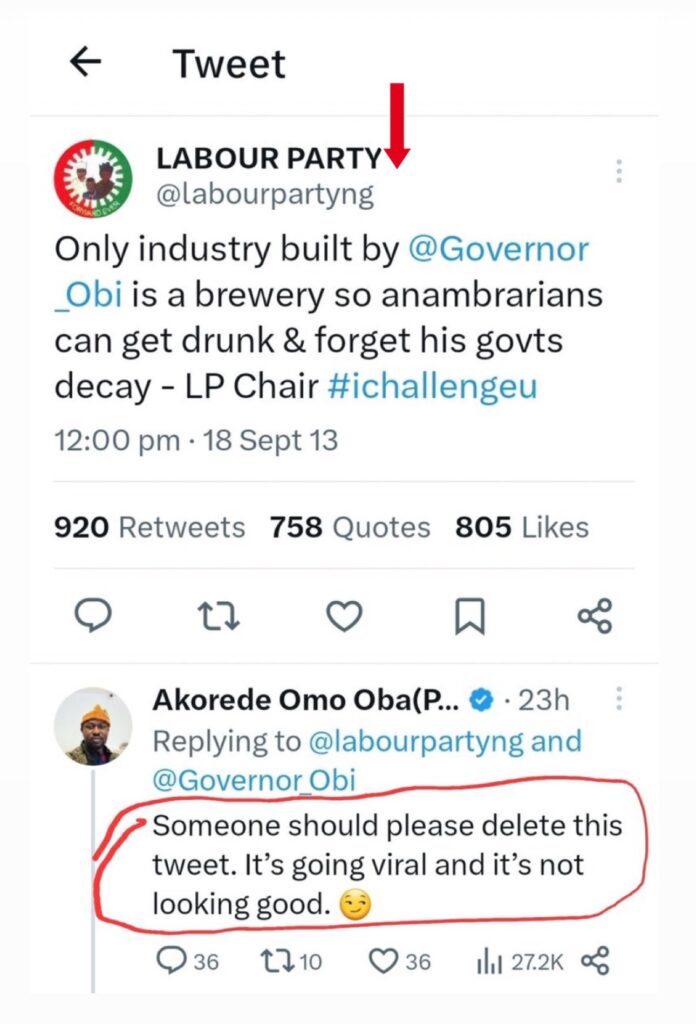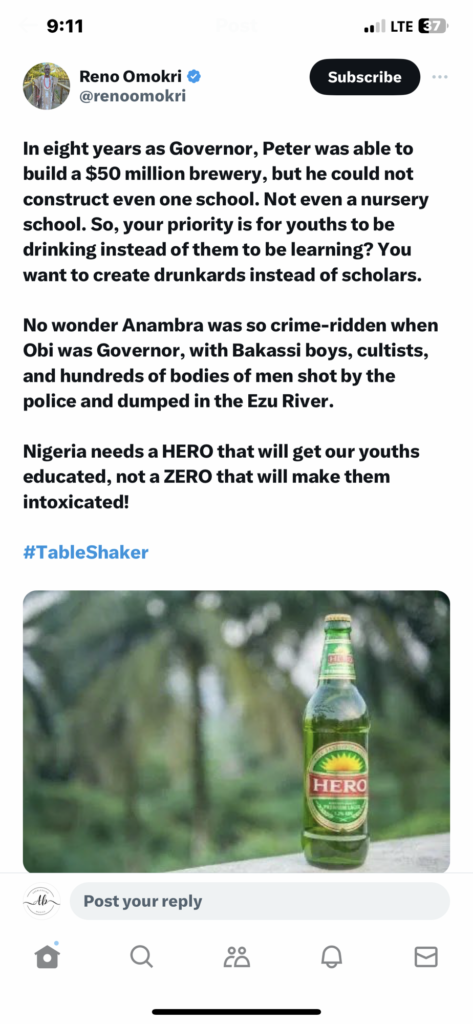Reno Omokri, a prominent Nigerian author and former aide to President Goodluck Jonathan, has sparked a significant dialogue regarding the leadership and priorities of political figures in Nigeria, particularly focusing on Peter Obi, the 2023 Labour Party Presidential Contender. Omokri criticized Obi’s tenure as the Governor of Anambra State, highlighting what he perceives as a failure to prioritize educational infrastructure over industrial investments like breweries.
Reno Omokri’s Critique of Peter Obi’s Governance
Reno Omokri used his platform on X (formerly Twitter) to express his concerns about Peter Obi’s achievements and priorities during his governorship. Omokri pointed out that while Obi managed to establish a $50 million brewery in Anambra, he allegedly did not invest in building educational institutions, not even a nursery school. Omokri’s critique extends beyond the lack of educational facilities; he also questions the societal implications of prioritizing alcohol production over academic advancement, suggesting a misplaced focus that favors “creating drunkards instead of scholars.”
The Impact of Leadership Choices on Youth
The crux of Omokri’s argument revolves around the impact of leadership decisions on youth development and crime rates. He insinuates that the absence of educational opportunities may correlate with the high crime rates experienced in Anambra during Obi’s governance. The mention of notorious groups like the Bakassi boys and the grim reference to the bodies dumped in the Ezu River are used to underscore a period marked by violence and lawlessness, which Omokri ties to a lack of positive youth engagement through education.
Analyzing the Allegations: Fact vs. Perception
While Omokri’s assertions are strong, it is essential to delve deeper into the facts surrounding Obi’s tenure. During his time as governor, Peter Obi was known for his financial prudence and efforts to reduce corruption, which won him national and international accolades. There were indeed significant challenges in Anambra, a state that has historically struggled with high crime rates, but attributing these solely to Obi’s leadership without acknowledging the broader socio-economic factors may not give a complete picture.
The Role of Political Leaders in Shaping Youth Futures
The controversy stirred by Omokri’s comments brings to light the critical role of political leaders in shaping the futures of their constituents, especially the youth. The debate emphasizes the need for leaders who prioritize long-term developmental goals over short-term gains. Education, often hailed as a cornerstone of societal advancement, is a fundamental area requiring unwavering commitment from those in power.
The Call for a Hero
Reno Omokri’s rallying cry for a “HERO that will get our youths educated” rather than a “ZERO that will make them intoxicated” resonates with the broader aspiration of many Nigerians for transformative leadership that champions education. As Nigeria approaches another election cycle, the focus on the track records of candidates in areas critical to national development, such as education, becomes increasingly pertinent. Voters and political analysts alike will likely scrutinize past achievements and failures of the contenders, seeking to elect those who will best serve the nation’s future.


In eight years as Governor, Peter was able to build a $50 million brewery, but he could not construct even one school. Not even a nursery school. So, your priority is for youths to be drinking instead of them to be learning? You want to create drunkards instead of scholars.
— Reno Omokri (@renoomokri) April 21, 2024
No… pic.twitter.com/aOkChRIvvN



